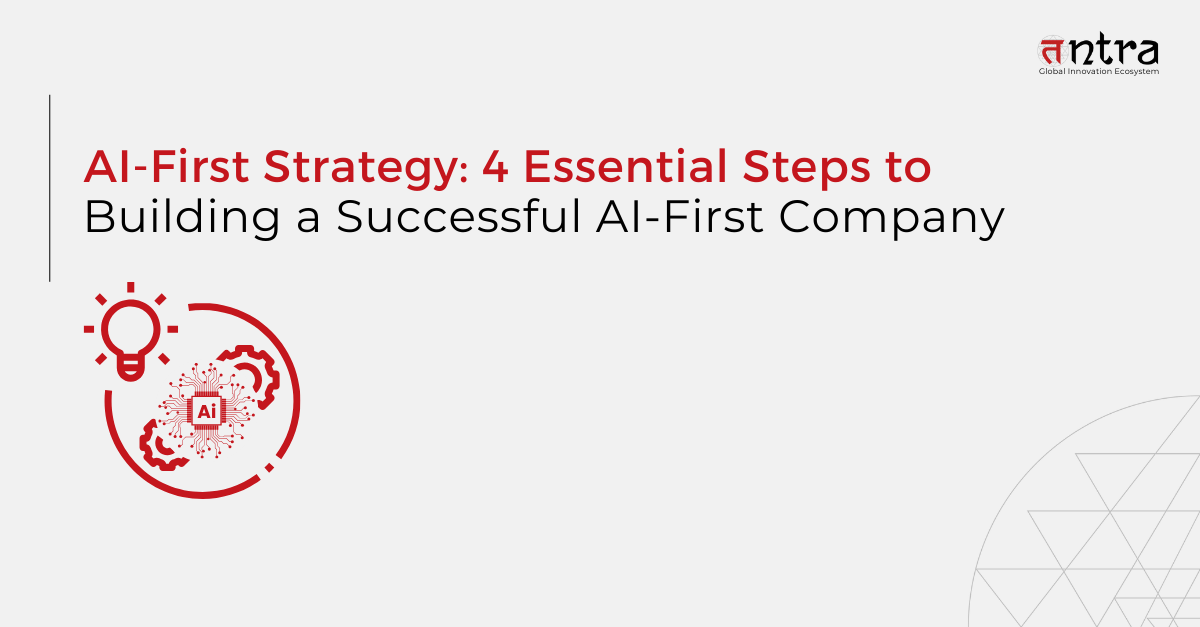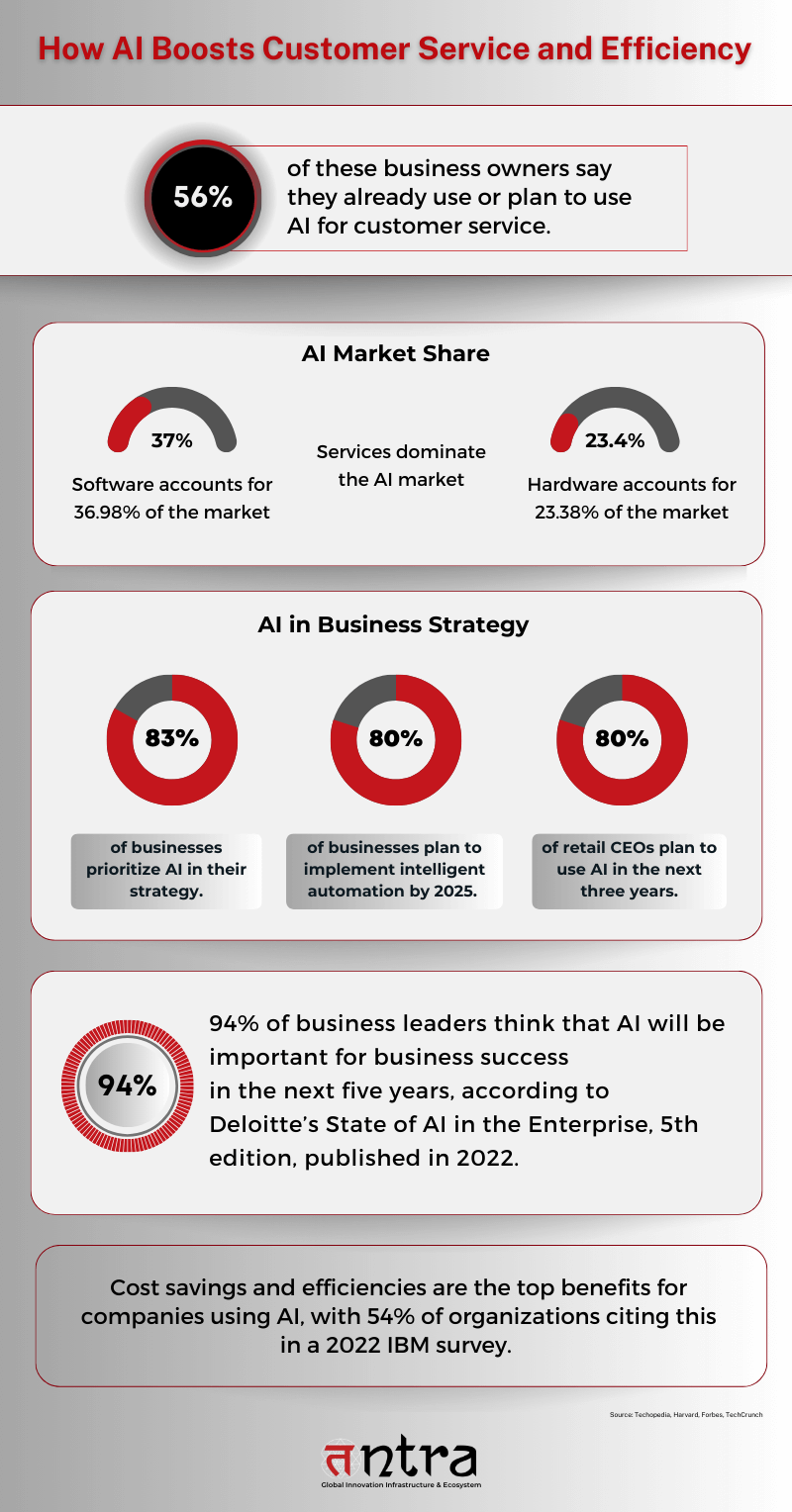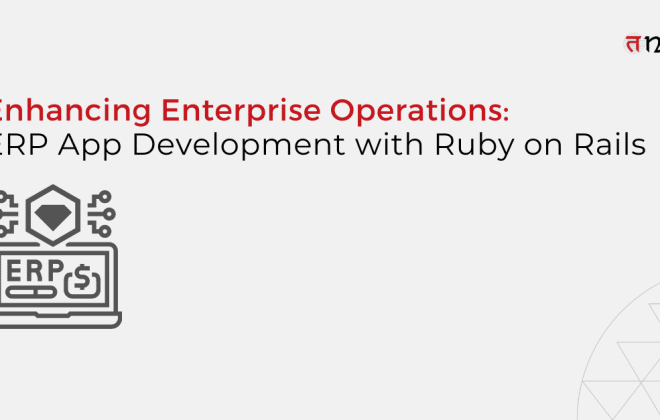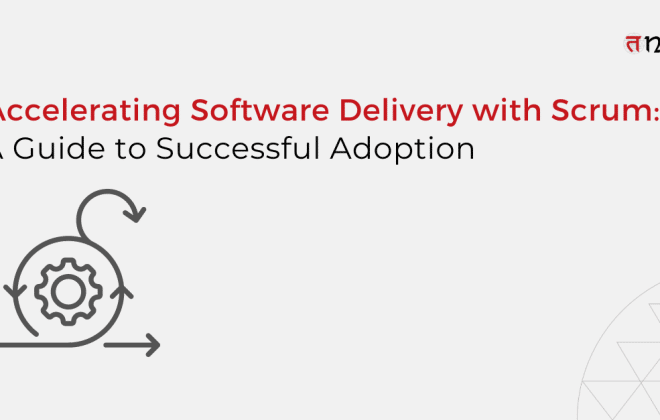
AI-First Strategy: 4 Essential Steps to Building a Successful AI-First Company
Table of Contents
ToggleAn AI-first strategy and culture can bring companies to the top of their game in this digital world. It provides them leverage to match the dynamic pace of consumer needs. By determining what AI means to them, leading by example, putting employees above AI, and deploying where it’s needed – companies can actually create new value for their customers and business. Continue reading to learn how you can build an integrate an AI-first culture in your organization.
Google’s parent business is called Alphabet. The company’s self-driving technology business, Waymo, started off as a Google initiative. Today, Waymo aims to lessen the number of crashes by introducing self-driving technology to the world in addition to moving people. Currently, its self-driving taxis are transporting passengers throughout California using its autonomous vehicles. During the test program, a human driver continues to operate the vehicle and the corporation is unable to charge a fare. When Google acquired DeepMind, it demonstrated its dedication to deep learning.
In addition to mastering 49 different Atari games, the AlphaGo program became the first to defeat a professional Go player. Google Duplex is another invention of the AI-first strategy from the company. An AI voice interface can make calls and set up appointments for you using natural language processing. Find out even more about the ways that Google is implementing machine learning and artificial intelligence in its operations.
Similarly, with Alexa, its digital assistant, Amazon is not just a player in the artificial intelligence space, but it also incorporates AI-first technology solutions into many other facets of its operations. One further creative application of artificial intelligence by Amazon is the ability to ship items to you before you even consider making a purchase. They gather a great deal of information about people’s purchasing patterns and are quite confident in the way that this information aids in product recommendations for their clients. With the help of predictive analytics, they are now able to anticipate consumers’ needs before they arise, thanks to their AI-first technology solutions.
During a period when numerous physical retailers are finding it difficult to remain competitive, the biggest online retailer in the United States presents a novel concept for convenience stores called Amazon Go. It’s not necessary to check out, unlike other stores. By integrating AI into business and leveraging AI consulting services, the stores keep track of the things you select, instantly charging your phone for those purchases via the Amazon Go app. You load your own bags with merchandise because there is no checkout, and cameras follow you around to identify everything you put in your bag so they can charge you for it.
(Source: Bernard Marr)
The Ascent of AI Strategies in Business
Businesses are using AI more and more. And as a result, customer wants and preferences are shifting. Actually, 81% of consumers believe that technological advancements would lead to faster service, and 73% want more personalization.
The largest portion of the AI market share is accounted for by services, which are followed by software (36.98%) and hardware (23.38%). The convenience and flexibility of adopting artificial intelligence (AI) as a service for your AI applications is the main reason why services dominate the AI market.
Artificial Intelligence ranks first in the business strategy of 83% of these companies. In 2025, eighty percent of businesses intend to implement intelligent automation, which is a neat fusion of automation and artificial intelligence. Retail CEOs are starting to realize this as well; eighty percent of them plan to use AI in the next three years.

How to Build and Integrate AI-First Business Strategies
An organization that puts AI-driven business implementation first puts its focus on using AI to do any task rather than depending on pre-existing procedures, tools, or systems. But it’s important to make clear that “AI-first” does not mean “AI-only.” When AI fails, we resort to conventional methods—at least for the time being.
Rather than just adding AI to current processes, benefits of AI-first approach are plenty. This does not mean that we cannot employ AI to provide incremental value—quite the contrary. To get the most out of AI, we should adopt an AI first approach and deploy AI gradually.
Here’s how to integrate AI-first strategy into business:
- Determine what AI means to you
- You have to determine what AI-first means to you before you can differentiate yourself as an AI first company. An organization that prioritizes responsible data learning is said to be AI-first.
- They use machine learning and artificial intelligence to increase the value they derive from their data over time by utilizing its speed, accuracy, and power. Their data automatically provides them with new insights. They pick up knowledge at an exponential rate. Their competitive advantage is gained and sustained by prioritizing data learning and responsible data usage.
- Lead by Example
- The organization’s top leadership must be firmly committed to implementing an AI-first culture. It is not enough for leaders to simply approve AI projects; they also need to actively participate in and direct them. This entails making financial investments in AI technologies as well as developing a compelling plan on how AI will influence the organization’s future. Leaders need to convey this vision to all staff members and ensure that they all understand how AI will contribute to the expansion and success of the company.
- Leaders should also set an example by being ready to adapt and learn new things with their teams. This might include AI-first roadmap training sessions, sparking conversations about how AI affects different parts of the business, and fostering a spirit of creativity and openness to change. This approach helps ensure the shift to an AI-first culture is embraced at all levels of the organization.
- Put Employees above AI
- AI will soon become a commodity, much like software-as-a-service (SaaS) is no longer a differentiation because it now makes up 70% of enterprise software. In one way or another, AI will be used by every business. The leaders will be distinguished from the rest by the way they apply AI.
- Human-centered AI software product engineering services are the most effective. Whether they are users, staff members, clients, patients, workers, constituents, or someone else entirely, they seek to comprehend and address the requirements, objectives, and difficulties of humans. When it comes to resolving human issues, human-centered, reliable AI puts people first.
- Deploy AI where it’s actually needed
- AI strategy implementation works best when it is created to address a particular use case. Keep in mind that AI excels at two tasks. 1. It finds patterns in enormous volumes of data. 2. Decisions are automated. Answering the straightforward question, “Where can we deploy AI to detect patterns, make wiser decisions sooner, or improve human-led, resource-intensive tasks,” will help your business stand out from the competition and effectively execute your AI-first strategy for enterprises.
- Businesses that can clearly define tasks and what constitutes a successful accomplishment of these activities would benefit most from artificial intelligence.
Closing Thoughts
Creating an AI-first approach is a complex and multifaceted undertaking. It requires thorough preparation, continuous education, and a strong commitment to the ethical and responsible use of AI. Companies can benefit from AI strategy development to define a clear roadmap for their AI journey, ensuring alignment with business objectives. Additionally, with the right AI implementation services, organizations can effectively execute these strategies, fully leveraging the potential of AI by focusing on five crucial areas. In today’s digital environment, this can lead to more innovation, increased efficiency, and heightened competition.
Organizations that use AI must adapt their cultures as the technology develops and changes. To take full advantage of all that artificial intelligence (AI) has to offer, these companies must keep abreast of its advancements through strategic planning and expert guidance in AI consulting services.
If you are looking to build an AI-first culture in your organization, contact our experts at Tntra, your trusted software product engineering company for Artificial Intelligence solutions.
Schedule a Call NOW!





